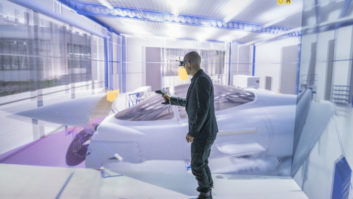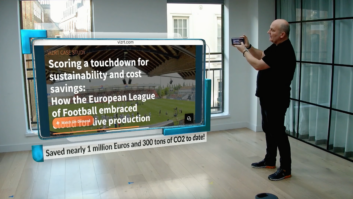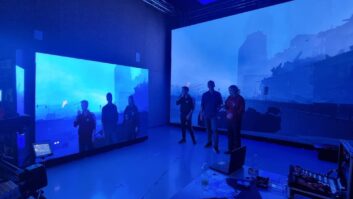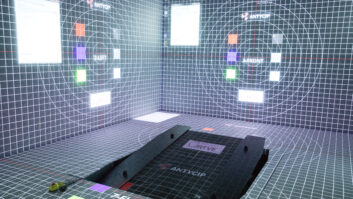
With the emergence of the metaverse, many of its underlying technologies experienced newly gained popularity in the past year, particularly for enterprise use cases. One of these metaverse building blocks is extended reality (XR). XR encompasses a spectrum of immersive technologies, ranging from augmented reality (AR) that partially augments the existing world around you, to virtual reality (VR) which fully immerses the user in a digital environment, leaving no traces of the physical world.
Following the initial metaverse hype, we are now seeing many industries adopting tangible XR use cases that translate to real business value. These include using VR for better remote collaboration and job skills training, reducing the need for travel and enabling businesses to meet ESG and net zero goals.
Using immersive virtual environments here is cost effective and allows for bespoke simulations that cater for any training or collaboration scenario, making these use cases applicable across industries and company size. They form a great entry point for deploying XR in enterprise settings and so it’s no surprise that we are seeing many businesses kick off their metaverse investments through VR for collaboration and training.
More specialised sectors are increasingly looking to XR to help them solve challenges that are traditionally time- and cost-intensive. Digital twins are used by manufacturing, supply chain and other industrial businesses to model processes and visualise factories and warehouses more effectively. In healthcare, bespoke XR devices made for use in operating rooms help surgeons pull up anatomical models and dial-in remote experts to consult on the ongoing procedure. Efforts are made to really scale up these use cases; for instance, the UK’s NHS is now looking at streamlining procurement guidelines and developing deployment frameworks to accelerate adoption.
Consumers will continue to benefit from AR activations, with retailers offering immersive shopping experiences that allow customers to try digital clothing, place digital furniture or even acquire digital-first goods and collectibles. As the technology improves with more lightweight, high-resolution devices being released by a range of big tech players this year, immersive gaming will also continue to flourish, becoming much more realistic.







